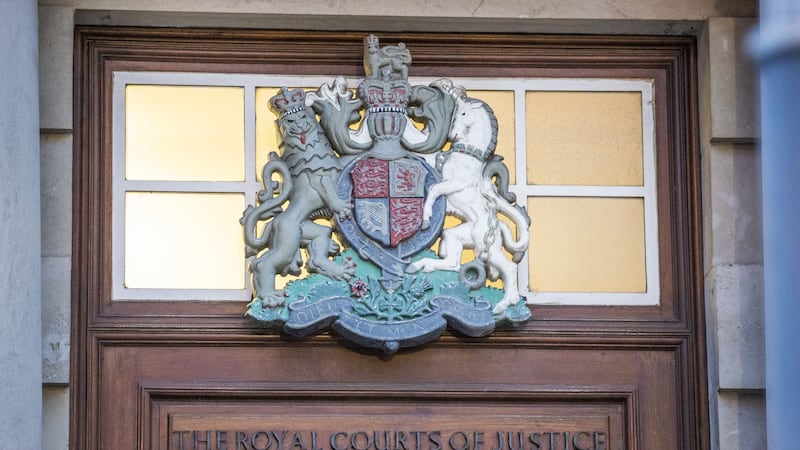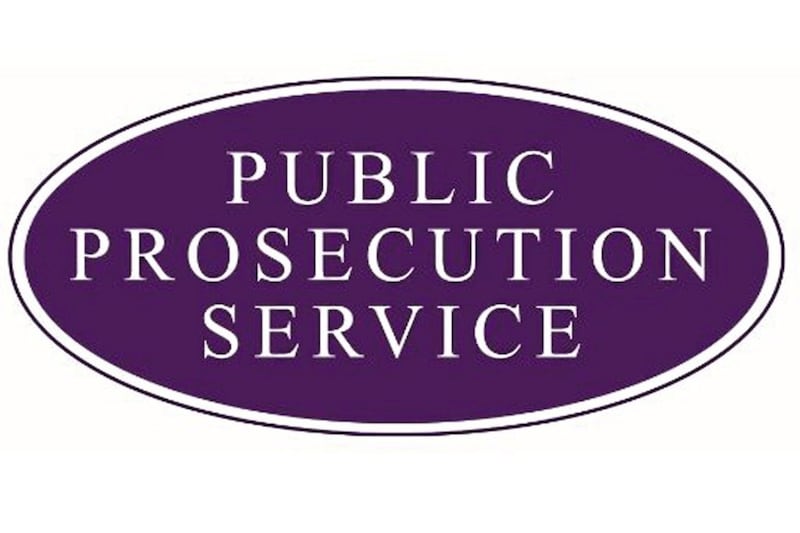There has been a significant increase in the number of sexual offences files being submitted by police to the Public Prosecution Service in Northern Ireland, figures have revealed.
Prosecutors received 1,858 files involving a sexual offence in 2022/23, up 23% from 1,509 in 2021/22.
There was also an increase of 14% in the number of files received by the PPS involving an offence of rape, from 600 to 684 in its Statistical Bulletin: Cases Involving Sexual Offences 2022/23.
Ciaran McQuillan, PPS assistant director, and head of the serious crime unit, said prosecutors are viewing the increase as a positive sign that more victims feel able to come forward.
While he said increased reporting and more files have an impact on the already under-pressure resources in the PPS and the wider criminal justice, he said there has also been an increase in the number of prosecutorial decisions issued in 2022/23.
“A total of 1,981 prosecutorial decisions issued in respect of suspects in cases involving sexual offences, an increase of 28.6% on 2021/22 (1,540),” he said.
“The Test for Prosecution was met in respect of 27.3% of decisions, which included 540 decisions for prosecution or diversion from the courts.
“At 27.3%, the percentage of decisions meeting the Test represents a
decrease from 2021/22 (35.5%).
“Of the 767 prosecutorial decisions issued in 2022/23 in respect of cases involving rape, 98 (12.8%) met the test for a sexual offence (including rape).
“A total of 76 (9.9%) met the test for a specific offence of rape (103, 17.3% in 2021/22).
“Although this represents a decrease on 2021/22, looking at the longer-term trends across a number of years, it appears that the prosecution rate for sexual offences has remained largely steady – 23.9% in 2018/19; 24.7% in 2019/20; and 23.6% in 2020/21.
Other key findings in the latest figures include that of 1,936 suspects, 705 of whom were charged or reported for rape, an increase of 13.3% on 2021/22, and 1,231 were in respect of other sexual offences – an increase of 29.4%.
Meanwhile 283 defendants were dealt with in the Crown Court in cases involving sexual offences where the overall conviction rate was 69.3% compared with 72.7% in 2021/22.
Ninety-seven defendants were dealt with in the Crown Court for an offence of rape and 63 (64.9%) of these were convicted of at least one offence, and 27 defendants (27.8%) were convicted of an offence of rape.
A total of 208 defendants were dealt with in the Magistrates’ and Youth Courts for a sexual offence during 2022/23 where the overall conviction rate was 73.6% compared with 73.2% in 2021/22.
Mr McQuillan said overall the statistics present a “largely steady picture” in terms of prosecution and conviction rates over the past number of years.
“We accept that every part of the system, including the time taken for prosecution decisions, moves too slowly, and we regret the impact this has on victims,” he said.
He said additional staff have been re-allocated in the last year to take decisions on the outstanding files, they are working with police to improve file quality and have streamlined processes to try to and ensure files contain all the necessary evidence to make a decision before they reach prosecutors, in an effort to reduce avoidable delay.”
But he said the PPS accept that “much more remains to be done across the system” to build the confidence of victims and improve how these cases are handled by every part of the criminal justice system.
“Sexual offending is abhorrent and should never be tolerated or excused.
“We in the PPS recognise the distress and trauma these offences cause victims and their families and we commend the courage of all victims,” he said.
“It is widely accepted across all jurisdictions that sexual offences cases are complex to investigate and prosecute.
“The bar is high to obtain a conviction.
“These are challenging cases to prove beyond all reasonable doubt.
“They are becoming increasingly complex, often involving large amounts of digital evidence and other evidential material which a prosecutor must consider.
“They can also give rise to sensitive issues in relation to disclosure.
“Cases involving sexual offending are less likely than other cases to result in a guilty plea, meaning victims must give evidence at a trial.
“There is no doubt they move too slowly through the system.
“Victims are left waiting too long for an outcome and feel frustrated with the criminal justice system when their case does conclude.
“We publish these statistics every year because we want to be open about our approach, and the challenges these cases present to the criminal justice system.
“Every part of that system, and wider society, has a responsibility to prioritise the issue of sexual offending and work together to tackle it.”







